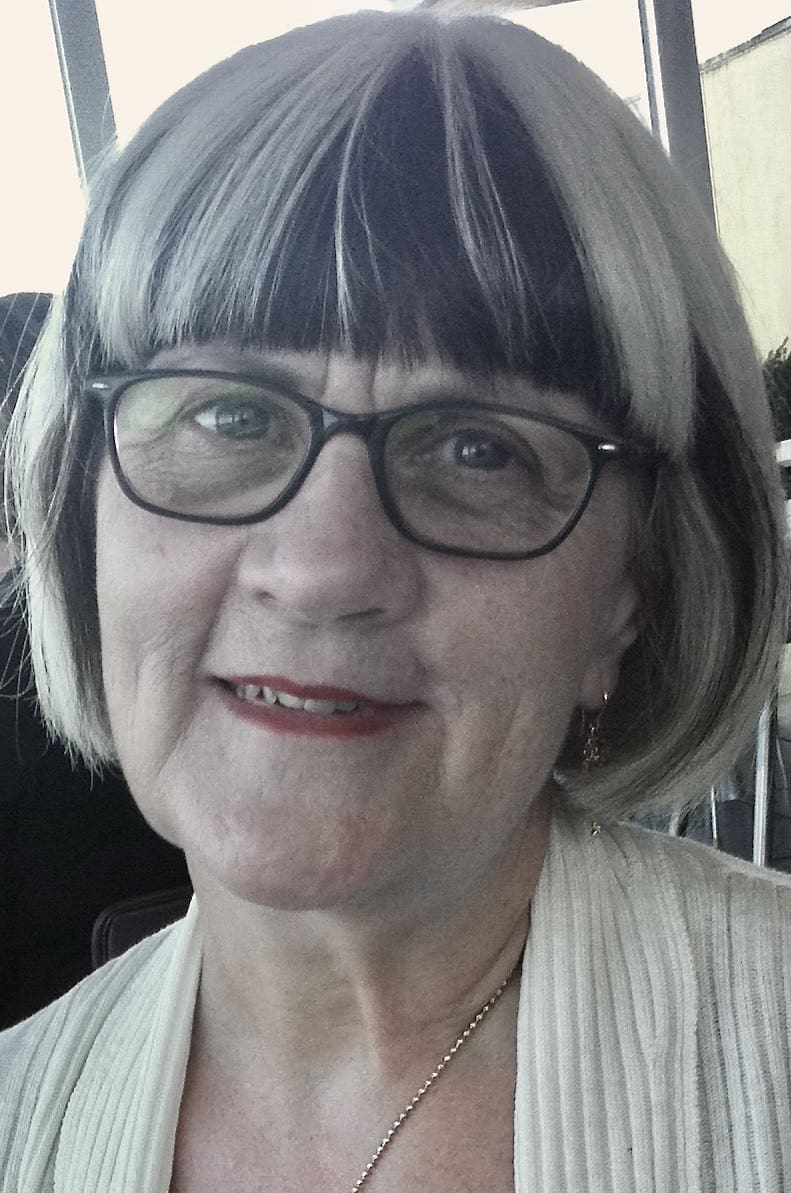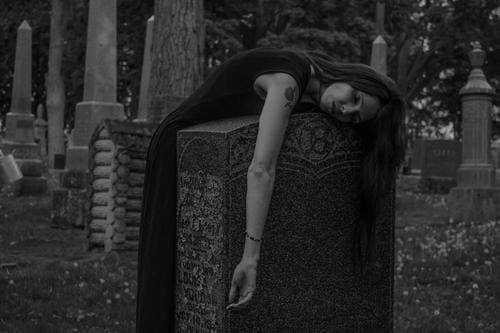An Interview With Deborah Sheldon On Liminal Spaces
 Deborah Sheldon has another release, the collection Liminal Spaces: Horror Stories. For her many ardent fans, this is another sublime plunge into all things horror. Sheldon is a perfectionist. And it shows in her meticulous research of time, place and factual details. From complex characters and gritty plotlines to visual settings and skilfully-paced narratives, she never lets her readers down. I recently met with Deborah to talk about her writing.
Deborah Sheldon has another release, the collection Liminal Spaces: Horror Stories. For her many ardent fans, this is another sublime plunge into all things horror. Sheldon is a perfectionist. And it shows in her meticulous research of time, place and factual details. From complex characters and gritty plotlines to visual settings and skilfully-paced narratives, she never lets her readers down. I recently met with Deborah to talk about her writing.
For a collection like Liminal Spaces, do you focus your attention non-stop on writing the stories or do you break it up with other writing projects?
I handed in my manuscript of Perfect Little Stitches and Other Stories in 2016, and began work on this current collection in 2017. Not much of a break, really! Most of the stories have been published in magazines, with a few nominated for Australian Shadows and Aurealis awards or included in ‘best of’ anthologies.
In between writing short stories, I worked on various long-form projects such as my bio-horror novella Thylacines, zombie novel Body Farm Z, bigfoot novella Man-Beast, and the anthologies Midnight Echo 14 and Spawn: Weird Horror Tales About Pregnancy, Birth and Babies. I’m constantly drawn to the short-story format. Even though I adore writing long-form projects, the short story will forever be my first love.
Liminal Spaces is an evocative title. What does it mean to you?
A liminal space is like a waiting room between the present and the future. Some years ago, I was diagnosed with an incurable, progressive autoimmune disease. The diagnosis made sense of my deteriorating health and mobility over the decades. However, it was a shock. I found myself writing stories about characters who are similarly trapped between a rock and a hard place. Once I consciously took note of the ‘dark helplessness’ theme running throughout my short stories, the title of my collection came easily. Like it says on the back-cover blurb: “The familiar is gone. The unknown lies ahead and with it, terrible possibilities.”
What is the most important thing to focus on when writing a short story?
Balance. The writer has to juggle plot, character, motivation, dialogue, mood, theme and tempo – all within a confined word count – in a way that flows seamlessly, without jolting the reader out of the story. It’s not easy, by any means! I’ve always believed that the shorter the word count, the more difficult the writing process.
A good short story also needs beautiful sentences. As a reader, I love stories where the writer’s style pulls me up and makes me reread sentences out of pure admiration. Writers should always sweat the small stuff. Agonising over word choices, punctuation or paragraphing should be an issue for any writer who is serious about their craft.
Do you find the writing process invigorating or are you exhausted by it?
This is a difficult question, given my autoimmune disease. Truthfully, the answer is both. Creative writing energises my psyche and soul but exhausts my body. A good writing day is inevitably followed by a bad day, meaning increased pain and fatigue.
I’ve been a professional writer since 1985. Writing has been the through-line of my life. I could no more stop writing than stop myself from breathing. My hope is that I don’t get too sick to write.
Writers who cross genres sometimes use a pseudonym. Is that something you might do?
Not unless I was writing something of which I was ashamed! I’m trying to build a body of work that’s true to my interests. Therefore, I’m more than happy to span genres from literary, to crime and noir, to dark fantasy and horror, to sci-fi and beyond. Even if I decided to write something completely out of left field, such as a children’s picture book, I would still use my own name. That said, I respect writers who wish to keep their genres – and readers – separate by using pseudonyms. It’s an individual choice.
How important do you think it is to have beta readers?
Any writer who believes their work can’t benefit from a fresh set of eyes is deluding themselves. As a mentor for the Australasian Horror Writers Association, I recommend to my mentees that they get a ‘writing buddy’ of about the same standard, and get used to giving and receiving constructive technical critiques. Every story in Liminal Spaces was workshopped in order to address plot holes, clunky sentences and grammatical issues. I’ve always sought out (professional) second opinions before submitting to a publisher, and always will.
***
LIMINAL SPACES: HORROR STORIES
BACK-COVER BLURB:
“Sheldon has an uncanny gift for unnerving imagery and story.”
– Aurealis Magazine
Transitions occur in a liminal space. The familiar is gone. The unknown lies ahead and with it, terrible possibilities. Award-winning author Deborah Sheldon explores liminal spaces in this collection of dark, unsettling fiction. Her characters teeter on frightening thresholds with no way back.
Liminal Spaces includes Sheldon’s award-nominated tales “For Weirdless Days and Weary Nights”, “All the Stars in Her Eyes” and “Barralang, Pop. 63”, plus original and unpublished fiction.
LIMINAL SPACES: HORROR STORIES – AMAZON (EBOOK)
https://www.amazon.com/Liminal-Spaces-Stories-Deborah-Sheldon-ebook/dp/B09SXKWM8Z
LIMINAL SPACES: HORROR STORIES – BOOK DEPOSITORY (PAPERBACK)
https://www.bookdepository.com/Liminal-Spaces-Horror-Stories-Deborah-Sheldon/9781925956993
AUTHOR BIO
Deborah Sheldon is an award-winning author from Melbourne, Australia. She writes short stories, novellas and novels across the darker spectrum of horror, crime and noir. Her award-nominated titles include the novels Body Farm Z, Contrition and Devil Dragon; the novella Thylacines; the collection Figments and Fragments: Dark Stories, and the anthology Spawn: Weird Horror Tales About Pregnancy, Birth and Babies.
Her collection Perfect Little Stitches and Other Stories won the Australian Shadows ‘Best Collected Work’ Award, was shortlisted for an Aurealis Award and longlisted for a Bram Stoker. Deb’s short fiction has appeared in many well-respected magazines such as Aurealis, Midnight Echo, Andromeda Spaceways, and Dimension6. Her fiction has also been shortlisted for numerous Australian Shadows Awards and Aurealis Awards, and included in various ‘best of’ anthologies such as Year’s Best Hardcore Horror. As editor of the 2019 edition of Midnight Echo, Deb won the Australian Shadows ‘Best Edited Work’ Award.
Deb’s other credits include TV scripts such as NEIGHBOURS, feature articles for Australian, US and UK magazines, non-fiction books (Reed Books, Random House), stage plays, and award-winning medical writing.
Visit her at http://deborahsheldon.wordpress.com
DEBORAH SHELDON’S AMAZON AUTHOR PAGE













